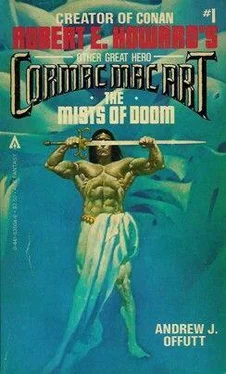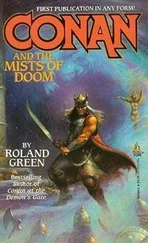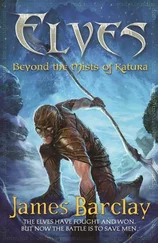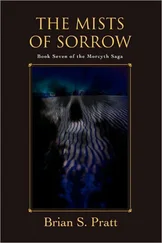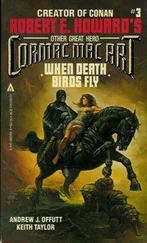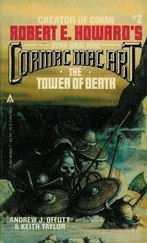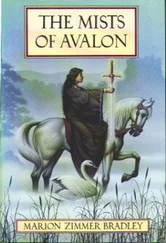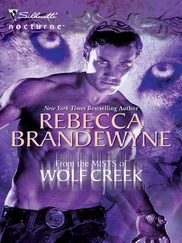Andrew Offutt - The Mists of Doom
Здесь есть возможность читать онлайн «Andrew Offutt - The Mists of Doom» весь текст электронной книги совершенно бесплатно (целиком полную версию без сокращений). В некоторых случаях можно слушать аудио, скачать через торрент в формате fb2 и присутствует краткое содержание. Жанр: Космическая фантастика, на английском языке. Описание произведения, (предисловие) а так же отзывы посетителей доступны на портале библиотеки ЛибКат.
- Название:The Mists of Doom
- Автор:
- Жанр:
- Год:неизвестен
- ISBN:нет данных
- Рейтинг книги:4 / 5. Голосов: 1
-
Избранное:Добавить в избранное
- Отзывы:
-
Ваша оценка:
- 80
- 1
- 2
- 3
- 4
- 5
The Mists of Doom: краткое содержание, описание и аннотация
Предлагаем к чтению аннотацию, описание, краткое содержание или предисловие (зависит от того, что написал сам автор книги «The Mists of Doom»). Если вы не нашли необходимую информацию о книге — напишите в комментариях, мы постараемся отыскать её.
The Mists of Doom — читать онлайн бесплатно полную книгу (весь текст) целиком
Ниже представлен текст книги, разбитый по страницам. Система сохранения места последней прочитанной страницы, позволяет с удобством читать онлайн бесплатно книгу «The Mists of Doom», без необходимости каждый раз заново искать на чём Вы остановились. Поставьте закладку, и сможете в любой момент перейти на страницу, на которой закончили чтение.
Интервал:
Закладка:
Much of his weariness left mac Art, then. A new energy of excitement came on him, born of apprehension and foreboding-and fearfulness.
The way was opened to the two, without a word. They passed within.
“Brychan!” Cormac called. “What’s amiss?”
The two guards exchanged a look. One said, “Amiss?”
Cormac’s stare was nigh onto a glare. “Ye heard ‘me aright.”
Brychan tucked under his lip; his companion made reply. “The druid will tell ye, son of Art.”
Brychan could not help himself. “How-how knew ye aught was amiss, son of Art?”
Cormac but looked at him; Midhir glowered. The weapon man set his teeth in his lower lip and busied himself with the gate’s closing.
The, horses paced into the sprawling townlet that had grown up around the fortress-become-manorhouse. There the main granary. There the other. There the stables. Near it the milk-sheds. There the creamery and buttery, there the cozy home of Midhir and his wife Aevgrine, and there doored mounds over underground storage chambers. Two large smokehouses. The barracks, sprawling, and homes of workmen and maids, drovers and churls, planters, the smith and armourer, the tanner and the horse-manager. Dogs yapped, wagged their tails, and some came running. Cormac’s mount whickered. A woman lugging her wash looked his way, met his eyes, looked a greeting with what seemed embarrassment, looked away. Children were clamorously at play-or work, for that life began at six or seven and sometimes earlier. Yet they seemed subdued, and they hushed at sight of the two riders.
Taller, huger, somehow darker and more gloomily foreboding, loomed the old fortress itself, the house of Art; the fortress-house that had been the home of Cormac mac Art through his memory.
Other people avoided his eyes, or looked away. None smiled. A chill came on Cormac’s very bones.
Something was sore amiss.
From the house of great oaken beams came Sualtim. Aye, and he wore his white robe as he had in his bodiless appearance to mac Art in the early hours of the previous night. Normally Sualtim, and indeed druids in general, wore their robes of deep forest green; the green of the leaves of the oak sacred to Behl.
“Sualtim! Where is my father?”
“Within, lad. Midhir: I would take Cormac in. Will ye be seeing to the horses?”
Midhir glanced about, caught the eye of a youth of eleven or so. Midhir beckoned. Then he returned his eyes-to the druid, even while Cormac slid from his horse. He alit with a clanky jingle of armour and the thwock of leather-shod, wooden swordsheath against his leg.
“Cormac,” Midhir said, and when the youth turned and looked questioningly up at him, “your buckler.”
Cormac gave his longtime trainer a look-and came about to fetch his shield from the saddle. The two had left behind their spears, awkward and indeed dangerous in a fast-walk-night ride through the woods.
“Druid,” Midhir said, as he threw his right leg over. He slid from his horse without glancing to the ground. “Are ye saying that ye want me not with ye two?”
The boy came in response to Midhir’s beckoning gesture; to him Midhir handed over the horses. “Give them good care, Curnan. It’s weary and doubtless hungry they are, but too hot to turn free in this chill.” And Midhir looked again at Sualtim.
Sualtim opened his mouth above the thin though very long beard of grey-flecked white. Ere he could speak, Cormac did.
“Nay,” the son of Art said. “Come ye with us, Midhir.” He started past Sualtim, to the greathouse.
“My pupil,” the druid began, from long habit, and paused to amend. “Cormac… wait.”
The youth, half-wheeled on the old man who remained straight though age was at work to fold his shoulders inward.
“Ye bespoke treachery, mentor,” Cormac said, forgetting he’d not told Midhir of the words of his vision. “No one we’ve seen here has behaved naturally. It’s ill or wounded my father is-”
“I but want to go in at your side, son of Art.”
And so they went. Within, in silence, they walked past the mournful face of Branwen with her deep belly, and then of Conor her nigh-bald husband, and Midhir followed them through the fortress-house to the door of the chamber of Art mac Comail. Was then a hand from the cold bed of a winterbound loch grasped at Cormac’s heart, for Sualtim did not knock.
Not even the druid, not even Cormac, entered the presence of the stern military Art mac Comail without knocking.
Cormac knew then, with his belly going light within him, that he’d be finding druids within the room, and Art lying still and cold in death, and he was right.
His eyes swam-and it was as if they sent a signal to all within Glondrath. Throughout the house and the entire rath then the keening began, for such was the way of Eirrin, and all had but awaited the arrival of the son to begin their clamorous mourning of his father’s death.
Some sons hated their fathers, often with reason. Some loved those who had sired them, equally with reason. Some sons were like shadeflowers all their lives, pale and as if delicate in their lack of forcefulness and accomplishment. Those were indeed sons all their days; sons of fathers, as opposed to men, who were also sons. Aye, and shadeflowers they were indeed, for the great light-blotting shadows of their fathers lay long and oppressive over them. Of these some sought to emerge into the light; others, like fearful rabbits, did not. When those fathers died, many of those sons, those permanent sons , subjects, were so unaccustomed to the light of freedom and decision and deeds that they were as blinded. Unequipped and unable to cope were they; such “men” became never men and were useless. Others kicked up their heels in the sudden freedom of the father-to which they were unaccustomed, and with which they were unable to cope. No longer controlled, they were unbridled. And they too were useless.
The sons of other men somehow emerged from the shadow naturally, perhaps realizing that they had been aided by their fathers and perhaps not. They became men.
And for some the shadows were foreshortened, removed; the great oaks fell before the coming of their time. Many of them sought the father, Father, all their lives. Religion helped; the religion of the Priests of Rome was for them, as it was for all who sought slavery or indeed were slaves, for among them had it been born. Some few of these sons who were early rendered fatherless became men. Perhaps they realized they were fortunate never to have been overshadowed, or to have joined the ranks of the seekers of Father. And for them and their presence in it the world, too, was fortunate.
It remained to be seen into which category Cormac mac Art would enter. Mac Art he was and would remain, though there was no longer an Art.
Art was dead. His son was alive, very alive.
He was not one with those who loved their fathers to fault. He was not one of those consumed with love for the father. Nor was he one of the many who hated the man who both sired and tyrannized-or ignored-him. For Art had been neither ineffective nor tyrant; each bred hatred. Consummate respect had been on Cormac, for Art; his fourteen years of life and his deed had reflected it. He’d He’d had much to prove; Art was to be respected, and to be impressed; he was worthy. And too his son was not the sort to be a basker in the light of another-or a delicate flower either, to dwell tranquilly in another’s shade.
Cormac would not exult in Art’s death. It did not occur to him that a son were the better for breaking free of the shade or having it removed from off his life.
Nor would he grive to excess and know despondence. It was not in him, and respect and love were never the same. As Art had been stern, and military and gruff, and busy so that Cormac had spent much time with the weapon-man Midhir and the sage druid Sualtim. Cormac had indeed respected more than loved his father; sought his approbation more than his attention and demonstrations of paternal love.
Читать дальшеИнтервал:
Закладка:
Похожие книги на «The Mists of Doom»
Представляем Вашему вниманию похожие книги на «The Mists of Doom» списком для выбора. Мы отобрали схожую по названию и смыслу литературу в надежде предоставить читателям больше вариантов отыскать новые, интересные, ещё непрочитанные произведения.
Обсуждение, отзывы о книге «The Mists of Doom» и просто собственные мнения читателей. Оставьте ваши комментарии, напишите, что Вы думаете о произведении, его смысле или главных героях. Укажите что конкретно понравилось, а что нет, и почему Вы так считаете.
